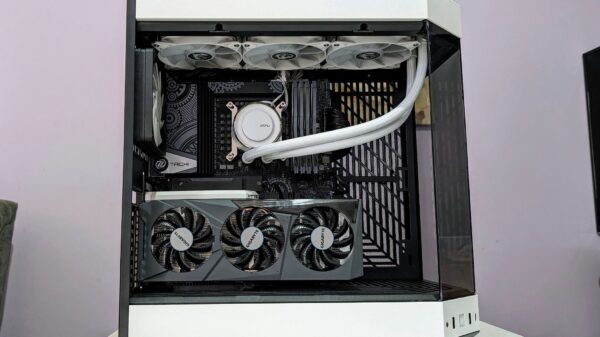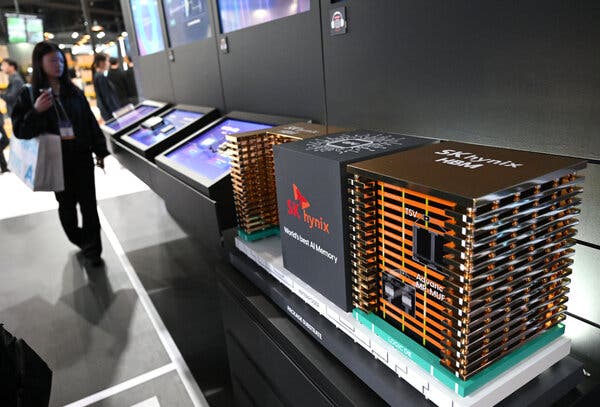UPDATE: The U.S. government has just announced a significant policy shift that directly impacts South Korean chipmakers Samsung and SK Hynix, making it increasingly difficult for them to obtain necessary equipment for their operations in China. The Commerce Department confirmed that it will revoke previous authorizations, mandating that these companies now secure licenses to ship critical semiconductor machinery to China.
This urgent development comes as the Biden administration had previously granted waivers to these firms in 2023, allowing them some leeway in accessing American technology. However, under former President Donald Trump, the push to limit Beijing’s access to advanced semiconductor technology is being revived, intensifying the ongoing tech rivalry between the United States and China.
The implications of this decision are profound, potentially straining trade relations between the U.S. and South Korea, especially as negotiations continue under the leadership of South Korean President Lee Jae Myung. Trade talks are ongoing, yet remain unofficial and unrecorded in public documents, raising concerns about their future viability.
Samsung declined to comment on the matter, but Yixi Lee, a spokesperson for SK Hynix, stated that the company will “maintain close communication with both Korean and the U.S. governments and take necessary measures to minimize the impact on our business.” This response underscores the immediate concern for both companies as they navigate these new restrictions.
Chipmakers like Samsung and SK Hynix are at the forefront of a broader face-off between the world’s two largest superpowers, the United States and China. The U.S. aims to stifle China’s advancements in developing artificial intelligence by cutting off access to critical semiconductor technologies.
As this situation unfolds, industry experts and policymakers are closely monitoring the potential fallout. The move could derail ongoing trade discussions, further complicating relations as both sides grapple with the implications of this policy change.
What’s Next: Stakeholders are keenly awaiting the specific guidelines from the Trump administration regarding the new licensing requirements. As the semiconductor industry remains pivotal to global technological leadership, the effects of this policy will likely resonate throughout the international market.
This urgent update is developing, and we will continue to provide the latest information as it becomes available. Share your thoughts on how this could affect global technology markets and trade relationships.






































































